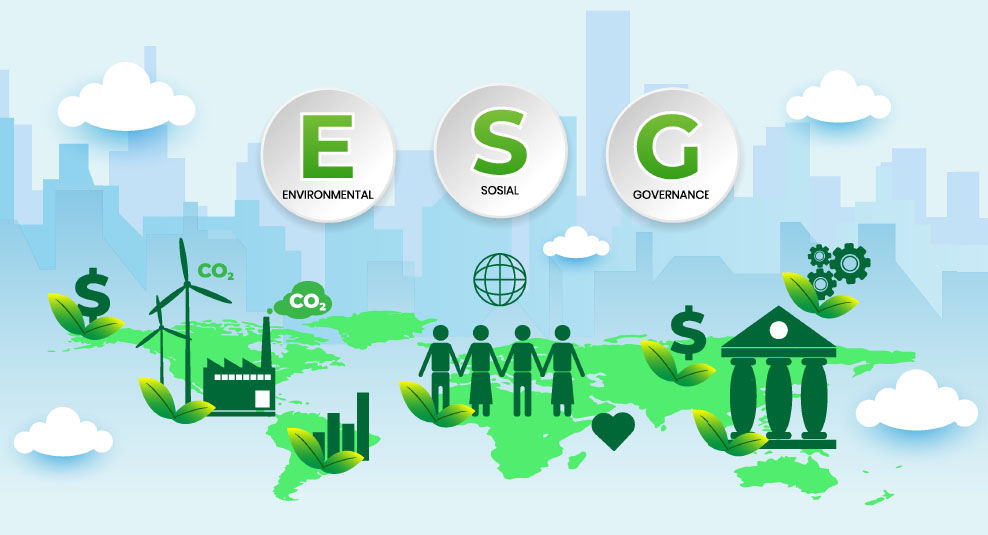
Tips for navigating Sustainable Investing
This month, we’re shifting gears a little but remaining within the intersection of your values and your personal financial plan, by looking at the topic of “Sustainable Investing”. Here is a brief overview of the current landscape and tips for how to get started.
The UN World Commission on Environment and Development defines sustainable development as “development that meets the needs of the present without compromising the ability of future generations to meet their own needs.” Sustainable investment therefore focuses on companies and sectors that embrace and achieve sustainable development in their operations, thus not compromising the needs of future generations in the pursuit of business and profits today.
So, what does this mean to you for aligning your values and principles with your investment portfolio? Well, ask yourself, do you care about future generations having clean air and water? Or having wild places and animals to enjoy? Or companies valuing and embracing diversity, inclusion and the communities they operate in and around, and acting as such?
If any of the above matters to you, it means you care, and you can invest accordingly. Too few people build their values into their portfolios.
ESG
First, let’s clarify the difference between ESG and Sustainability.
ESG stands for Environmental, Social and Governance – which are specific, measurable criteria which a company can report against. Sustainability is a vague term which means different things to different people and companies.
ESG criteria are data-driven, specific, measurable and reportable. As an investor, this means you can track how a company is progressing in their commitment to these criteria.

Environmental – a company’s environmental impact is how it operates in sustainable ways that reduce its environmental impact and don’t negatively impact future resource availability, without jeopardizing profitability and operating efficiencies. Examples include reducing waste, using renewable resources/energy, abiding by environmental regulations, following recommended practices, reducing their carbon footprint, etc.
Social – a company’s social impact is its impact on its employees, customers and the communities in and around which it operates. Social impact includes things like diversity and inclusion, philanthropy, employee engagement and training, community outreach and customer satisfaction, as well as data usage and privacy.
Governance – governance relates to how a company is governed through its business structure and leadership. This includes things like Board of Directors composition, executive pay, operational structures and efficiencies, profit motives and directives, handling of bribery and corruption, and how much ESG is a priority for the Board and company management.
Many people and companies only associate the environmental element of ESG with sustainability. This is a great area to focus on, but focusing only on this and not on the social and governance elements misses the broader point of sustainability and prevents a company from achieving its maximum positive impact on the world and the people and communities in which it operates.
Ultimately, sustainability is about preserving our way of life for future generations, and if sustainable investing matters to you, how can you be sure the companies you want to invest in are actually doing what they say?
SUSTAINABLE INVESTING
Sustainable investing means investing in companies that truly embrace sustainability and maintain ESG programs, goals and initiatives. So, when you are looking to invest in companies embracing sustainability in their taglines, ask yourself:
- What are their bigger picture concerns regarding climate change?
- How do they treat their employees?
- Do they truly embrace diversity & inclusion?
- What are their policies concerning racism, sexism, bullying, hiring, etc.?
- What do they contribute to the community?
- What are their employees saying about them on social media?
- Are ESG policies truly part of company culture (including amongst senior management) or is it just ‘lip service’?
In order to become a sustainable investor, look to invest in companies and sectors that have a proven track record and are known for their ESG initiatives and sustainable practices. This might include companies that:
- Have an existing or developing track record proving that ESG is a core priority .
- Focus on sustainable plant-based foods.
- Focus on providing/using renewable energy.
- Embrace diversity & inclusion in the workplace.
- Have deep and meaningful positive community support, funding and programs.
- Provide investors with concrete examples of their programs and initiatives in ESG, and the data to prove their commitments and programs are operating, growing, measurable, and improving over time.
There have been many studies and reports by large consulting firms, banks and others to assess the ESG standards and practices of listed public companies in more broad terms. Many of them are available for free. If you are interested in sustainable investing, you can read these reports, and many others, to learn more:
Insights on Sustainability from McKinsey & Company
The UCLA Sustainability website and related initiatives
The Portal for Sustainability Reporting
More locally in Hong Kong, many companies are now issuing Sustainability Reports and detailing their ESG programs, such as HSBC, the MTR and China Light & Power (CLP).
GETTING STARTED
To get started with sustainable investing, there are companies like Betterment that provide ways to invest in things with a “Broad Impact”, “Climate Impact” or “Social Impact”. Betterment provides portfolios so you do not have to research and buy individual companies on your own.

Other investment companies, like Fidelity, Blackrock, and HSBC offer funds specifically focused on sustainable investing and help integrate ESG factors into your investment decisions.
Sustainable investing helps you to align your values and principles with your investment decisions, and to support companies that care about their global impact by embracing sustainability broadly and ESG factors specifically. Your investment matters. You have the power to create change through sustainable investing, and in the process, contribute to the well-being of yours and future generations.
#whyESGmatters #createchange #sustainableinvesting
For further reading on ESG, check out: https://www.bankrate.com/investing/esg-investing/
Interested in more tips from Lachlan? Check out: https://wellmagazineasia.com/value-based-spending-5-ways-to-stay-on-track-and-budget-with-purpose/
About the author: Lachlan Campbell’s purpose, his “Why”, is to help people live the life they want, their way. He founded MAD Success Limited, because he believes everyone should live a happy, healthy, wealthy, more fulfilled life. As experts and thought leaders in Wellness, MAD Success offers workshops, seminars, courses and coaching for individuals and corporates. Lachlan is available for local and international professional coaching, consulting, and speaking engagements on such life fulfilling topics as Creating a Life or Financial Plan, Career, Leadership, Entrepreneurship, and Wellness (holistically combining Mental, Physical & Financial Well-Being). Email: GetUnstuck@MADSuccess.com
Written exclusively for WELL, Magazine Asia by Lachlan Campbell

Thank you for reading this article from WELL, Magazine Asia. #LifeUnfiltered.
Connect with us on social for daily news, competitions, and more.





